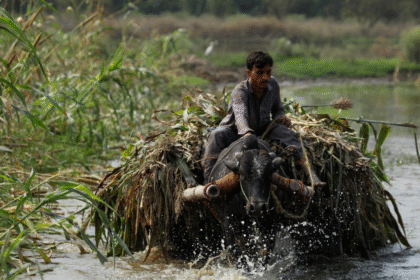In a pivotal moment for Pakistan’s judicial landscape, newly appointed Chief Justice Yahya Afridi engaged in significant discussions with outgoing Chief Justice Qazi Faiz Isa and Justice Mansoor Ali Shah. These meetings, which occurred shortly after Afridi’s nomination, are crucial as they signify the transition of leadership within the Supreme Court, a body that plays a central role in the legal and constitutional framework of the country.
- Meeting with Chief Justice Qazi Faiz Isa
- Key Issues Facing the Judiciary
- Visit to Justice Mansoor Ali Shah
- The Role of the Chief Justice
- Personal Background of Justice Yahya Afridi
- Response to Judicial Challenges
- The Importance of Public Confidence
- Ongoing Reforms in the Judiciary
- Collaboration with Other Branches of Government
- The Future of the Judiciary Under Justice Afridi
Meeting with Chief Justice Qazi Faiz Isa
The first meeting took place in the chambers of Chief Justice Qazi Faiz Isa, where both justices exchanged congratulations and insights. Justice Isa, known for his progressive judgments and commitment to upholding the rule of law, took this opportunity to extend his best wishes to Afridi. The discussions covered various pressing issues currently confronting the judiciary, including case management, the backlog of cases, and the importance of maintaining public confidence in the judicial system.
Justice Afridi expressed gratitude for the warm welcome and acknowledged the foundation laid by his predecessor. Their exchange highlighted the ongoing need for dialogue within the judiciary to address the challenges of an ever-evolving legal landscape. This initial interaction not only symbolizes respect among the judicial ranks but also underscores the significance of mentorship and continuity in the higher echelons of the judiciary.
Key Issues Facing the Judiciary
As Afridi prepares to take on his new responsibilities, the judiciary faces several critical challenges. The backlog of cases in Pakistan has been a longstanding issue, with thousands of cases pending in various courts across the country. This backlog not only hampers the administration of justice but also undermines public confidence in the legal system.
Moreover, the issue of judicial independence remains a pressing concern. There have been calls for greater autonomy from political influence, with many stakeholders advocating for reforms to ensure that the judiciary can operate free from external pressures. Justice Afridi’s leadership will be crucial in addressing these issues and restoring public faith in the system.
Visit to Justice Mansoor Ali Shah
Following his meeting with Justice Isa, Afridi visited the chambers of Justice Mansoor Ali Shah. Justice Shah is known for his advocacy of human rights and has played a significant role in several landmark rulings that have shaped the legal landscape of Pakistan. This meeting is particularly important as it represents the collaborative spirit among the justices of the Supreme Court.
During their discussions, Afridi and Shah likely exchanged views on recent judgments and ongoing cases, as well as the broader implications of their decisions on society. Justice Shah’s experience and commitment to progressive legal principles could provide Afridi with valuable insights as he navigates the complexities of his new role.
The Role of the Chief Justice
The Chief Justice of Pakistan holds a vital position in the country’s legal framework. As the head of the judiciary, the Chief Justice is responsible for leading the Supreme Court, overseeing court administration, and representing the judiciary in interactions with the executive and legislative branches of government.
Moreover, the Chief Justice has the authority to allocate cases to different benches, influencing the direction of judicial decisions. This power necessitates a careful and balanced approach to ensure that justice is administered fairly and impartially.
Personal Background of Justice Yahya Afridi
Justice Yahya Afridi has a rich legal background that positions him well for his new role. He was appointed to the Supreme Court in 2018 after serving as a judge of the Peshawar High Court. His legal acumen and experience in various capacities within the judiciary have equipped him with a nuanced understanding of the complexities of law and governance in Pakistan.
Afridi’s educational background includes a degree from the University of Peshawar and further legal studies in the United States. This diverse educational experience allows him to bring a global perspective to his judicial responsibilities.
Response to Judicial Challenges
The challenges facing the judiciary require not only administrative efficiency but also a commitment to upholding human rights and protecting the rights of marginalized communities. Justice Afridi has previously demonstrated a sensitivity to these issues, which will be essential as he leads the judiciary through potentially turbulent times.
In addition to addressing the backlog of cases, Justice Afridi will need to focus on enhancing the efficiency of the judicial process. Implementing technology solutions, such as electronic filing systems and virtual hearings, could streamline court operations and make justice more accessible to the public.
The Importance of Public Confidence
Restoring public confidence in the judiciary is paramount. In recent years, there has been a growing perception among citizens that the legal system is not always fair or accessible. High-profile cases involving political figures and allegations of corruption have further fueled skepticism about the integrity of the judiciary.
To counter this perception, Justice Afridi will need to prioritize transparency and accountability within the judicial system. Engaging with civil society, legal professionals, and the media will be critical in rebuilding trust and ensuring that the judiciary remains accountable to the people it serves.
Ongoing Reforms in the Judiciary
Reforms within the judiciary are essential for addressing the structural issues that contribute to the backlog of cases and inefficiencies. Justice Afridi’s leadership will be instrumental in driving these reforms forward. Initiatives aimed at enhancing the training of judges, improving case management systems, and fostering greater cooperation among judicial institutions can significantly improve the overall functioning of the legal system.
Moreover, addressing the issues of judicial appointments and promotions will be crucial in ensuring that the most qualified individuals are placed in positions of authority. Implementing merit-based selection processes and reducing political interference in judicial appointments can help strengthen the integrity of the judiciary.
Collaboration with Other Branches of Government
The relationship between the judiciary and other branches of government plays a critical role in the overall governance framework. Justice Afridi will need to navigate this relationship carefully, particularly in a political landscape that has seen significant tensions between the executive and judiciary.
Promoting dialogue between the judiciary and legislative bodies can foster a collaborative environment that supports the rule of law. It is essential for the judiciary to maintain its independence while also engaging constructively with the government to address shared concerns, such as legal reforms and public safety.
The Future of the Judiciary Under Justice Afridi
As Justice Yahya Afridi embarks on his journey as Chief Justice of Pakistan, his leadership will be instrumental in shaping the future of the judiciary. By prioritizing transparency, efficiency, and the protection of human rights, Afridi has the potential to leave a lasting impact on the legal landscape of Pakistan.
The support and collaboration of his fellow justices will be crucial as he navigates the complexities of his role. Together, they can work towards a judiciary that is not only effective but also responsive to the needs of the people it serves.
The path ahead may be fraught with challenges, but with a commitment to justice and a focus on reform, Justice Afridi has the opportunity to lead the judiciary into a new era of integrity and public trust.
#ChiefJustice #YahyaAfridi #PakistanJudiciary #QaziFaizIsa #JusticeSystem #LegalReforms #SupremeCourt #RuleOfLaw







